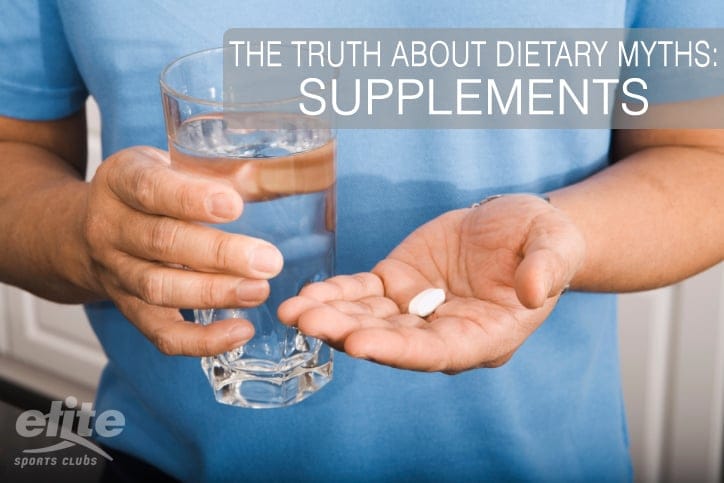
If you follow the news, it will not take you long to come across a story about the latest unfolding of the truth about some dietary or nutrition myth, and it always seems to surprise people. Most information, if found in print, is taken as the truth. Yet, obviously this isn’t always the case. We will take the next month to explore this very issue, and try to debunk some of those famous dietary myths.
First and foremost, is the talk that surrounds the usefulness of dietary supplements as vitamin and mineral complexes that will increase body function. For some time, people seeking enhanced dietary supply have felt as though they could be healthier by using these products. And, thinking about all the common illnesses that we get today, such as colds, the flu, and many digestive disorders, it is not surprising to think that these products would be in high demand.
The Food and Drug Administration has spent many years trying to study these very compounds as they exist in over the counter products today. Years of research, however, has brought very little in terms of findings. So, do supplements do anything special for you or not?
Based upon the findings that have come out by major universities all over the world, dietary supplements do not hurt you in terms of any toxicity to your system. There are NO cases of personal damage to cells after taking vitamin-mineral supplements available in the research of the last 50 years of study. So we are in the “clear” there.
But, what about the studies on dietary enhancement to help you in your normal daily function throughout your body? Do supplements help? Most research has said “no.”
The Academy of Nutrition and Dietetics will also report that the majority of findings are unclear as to any real change or benefit from supplementation. Looking further, most health providers would have to agree that it is difficult to tract the influence of any naturally occurring substance, such as vitamin C or A. The mere fact that they are “naturally occurring” will make the process undetectable.
Today, dietitians recommend the use of dietary supplements for some diseases and during periods of dietary stress; pregnancy, weight loss, long-term stress, and the like.
Be your own judge in this situation. Use products that you think will benefit you the most. Leave those that appear to add more “hype” than anything on the shelf. And always contact a nutrition and dietary specialist when considering changes to your overall dietary plan.
Looking for more healthy tips? Set up a consultation with our Registered Dietitian!
By Rita Larsen, RD, CD; Elite Sports Clubs Nutrition Educator & Diet Counselor